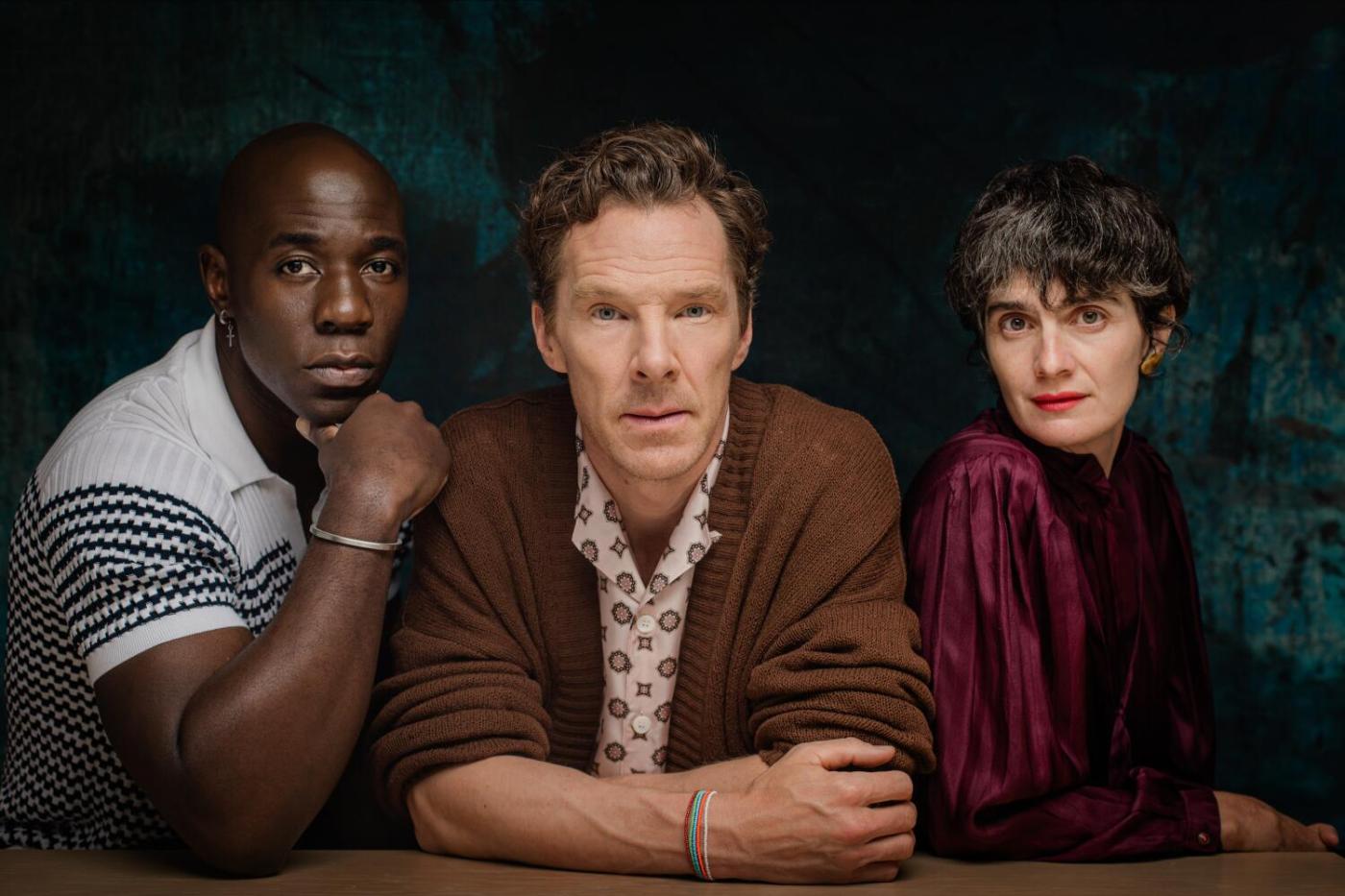
Benedict Cumberbatch navigates chaos in ‘Eric’
“Eric,” the Netflix mini-series streaming Thursday, teams Benedict Cumberbatch and Gaby Hoffmann as a fractured ‘80s couple whose son goes missing in New York City.
“Oddly, it wasn’t that hard for us to build a toxic relationship rather quickly,” Hoffmann, 42, said with a laugh in a joint Zoom interview.
Scripted by the award-winning Brit Abi Morgan (Meryl Streep’s “The Iron Lady,” the sexually explicit “Shame”), “Eric” heats its many characters in a chaotic cauldron.
Cumberbatch’s Vincent Anderson, long married to Hoffmann’s Cassie, has scored with a “Sesame Street”-style children’s puppet show whose ratings are declining. His marital and parenting issues are compounded when nine-year-old Edgar disappears en route to school.
Cumberbatch, 47, took stock of troubled Vincent. “He’s a functioning alcoholic in his mid-40s. Married 10 years, it’s going south. Has been for a while.
“He’s a workaholic who’s poured his entire identity (or reimagining of his early life identity) into this show — and it’s under assault and everyone’s getting nervous. It’s not current or hip or fashionable enough — and that feels like an attack on his character.
“He was brought up in a world of privilege. But no world is privileged when mental health is overlooked –”
“Or you’re not being properly parented,” Hoffmann noted.
“Or just given over to Big Pharma,” Cumberbatch continued, “and be told to be out of sight, out of mind, when you’re really in pain and need love and need to be heard and seen.
“All that snowballs into where his kid is a sort of distraction. He doesn’t ‘see’ his own son. And Cassie sees that.
“That catapults the whole relationship into a full-on crisis. Then obviously when Edgar disappears, it gets up to an unbearable pitch that makes the whole thing fall apart.”
Setting it in an ‘80s of AIDS, graffiti, disco, drugs and corruption, Hoffmann believes, points to a larger picture.
“To me, the show is really about what happens when our institutions become corrupted: Not just the institution of family, of marriage. But the larger institutions of government, City Hall, the police department. All of which, of course, the show is covering.
“These things – racism, homophobia – are the forces that corrupt institutions in New York City in the ’80s.
“The ’60s and ’70s didn’t lead us where we thought they were going and this country took a sharp turn. Now, 40 years later, we are sowing those oats.
“To me, this is a fable, a fairy tale, a document of the soul that we in the show are experiencing. So the 80s is the perfect era to set this in. Where it’s really the beginning.”


